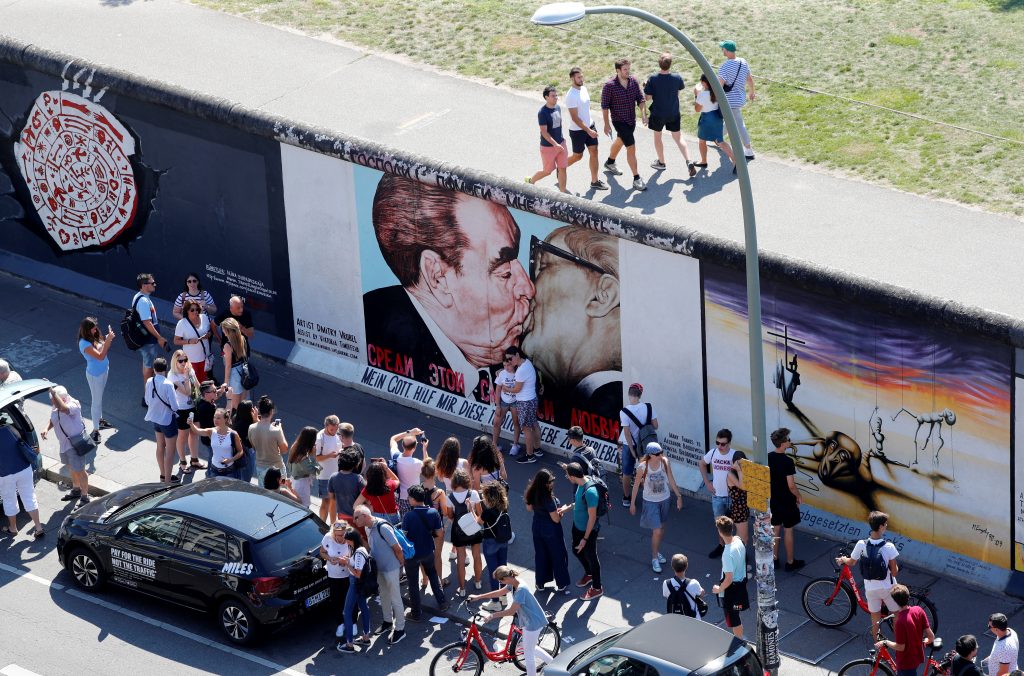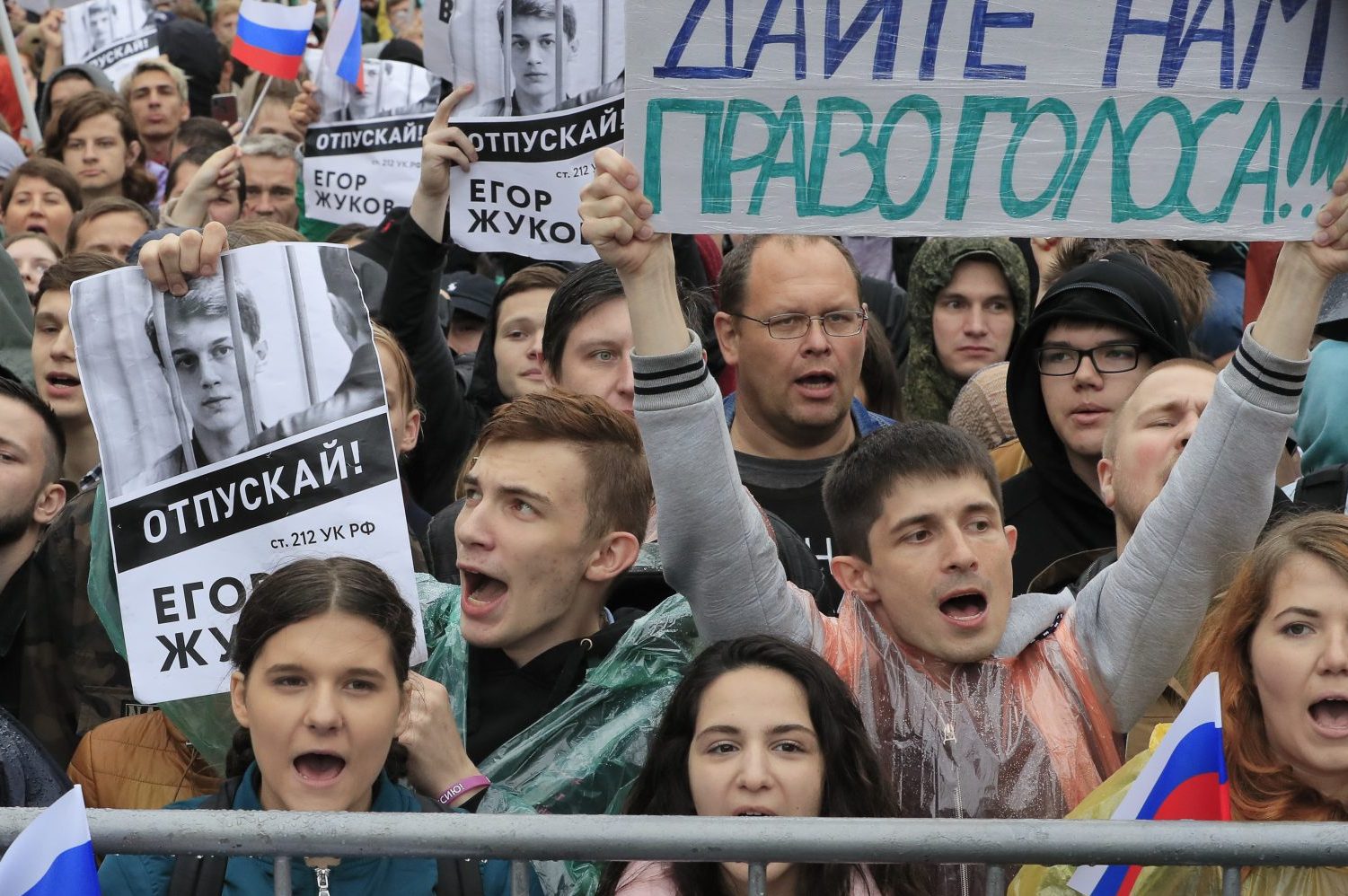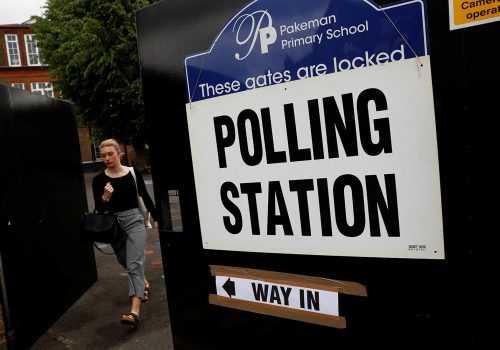Next week’s thirtieth anniversary of the Berlin Wall’s collapse will be less a moment to celebrate democracy’s improbable Cold War triumph and more a time to confront the even more difficult contest ahead with a more formidable competitor.
In my best-selling book, Berlin 1961: Kennedy, Khrushchev and the World’s Most Dangerous Place, I refer to the Berlin Wall as “the iconic image of what unfree systems can impose when free leaders fail to resist.” Perhaps never in human history has both an era’s challenge and its finish been made so physically manifest.
Today’s world lacks any similar, galvanizing image, but events even of just the past week underscore the greater complexity of today’s challenges, the growing intensity of major power competition and the insufficient attention paid by the United States and its allies to the contest.
Authoritarian China this week rolled out the world’s largest 5G mobile phone network at home – with technology advanced beyond that of its Western competitors. That came amid a battle for market dominance centered around America’s global campaign against countries installing China’s 5G gear. This battle is likely to repeat itself across other technologies, from artificial intelligence to quantum computing.
Even as the House of Representatives voted on partisan lines to approve an impeachment resolution against President Donald Trump, Chinese President Xi Jinping won support from the Communist Party’s governing Central Committee at the end of a four-day meeting in a document that used the word “persevere” 57 times.
The message was clear: With China’s economy slowing, with its damaging trade war with the US continuing, and with Hong Kong unrest persisting, President Xi was moving to concentrate even more power in his own hands and that of the Communist party for what Beijing anticipates will be a generational struggle.
Get the Inflection Points newsletter
Subscribe to Frederick Kempe’s weekly Inflection Points column, which focuses on the global challenges facing the United States and how to best address them.
In Europe, Denmark provided Russia a major boost for its efforts to deepen Europe’s dependence on its energy exports. Despite the threat of US sanctions, Denmark removed the last significant impediment for the $11 billion Nord Stream 2 pipeline, scheduled to be commissioned at the end of this year.
“Denmark showed itself to be a responsible participant in international relations,” said Russian President Vladimir Putin with full-throated praise, “defending its interests and sovereignty and the interests of its main partners in Europe.” That follows Putin’s recent declaration of the end of Pax Americana in a global system that must do more to embrace Asian countries.
It is in that atmosphere that US Secretary of State Michael R. Pompeo will visit Germany next week from November 6-8 to mark the 30th anniversary of the Berlin Wall’s fall. He’ll deliver a speech on Friday that will rightly focus on “the continuing imperative to defend free nations and free peoples,” as the State Department statement on his travel has billed it.
It will be one of a series of speeches in coming weeks that Secretary Pompeo has said would focus on the competing ideologies and values defining our times, particularly Chinese influence companies and “unfair and predatory” economic practices.
“They are reaching for and using methods that have created challenges for the United States and for the world and we collectively, all of us, need to confront these challenges … head on,” Secretary Pompeo said this week to the Hudson Institute in New York. “It is no longer realistic to ignore the fundamental difference between our two systems” and the impact that has on US national security.
The problem is that the factors that went into winning the Cold War are lacking now: a relatively consistent strategy that had evolved over decades, a determined and mostly unified alliance, and a Soviet adversary that was militarily strong but economically weak and one-dimensional, with an economy driven primarily by its energy production.
Timed for release around this historic Berlin Wall anniversary, the Atlantic Council this week published two new papers aimed at understanding the historic stakes of the current major power contest and an approach to navigating the future based more on reality than nostalgia.
“The old historical rhythm that has laid the foundations of the Western liberal order has come to an end,” argues Mathew Burrows in his paper Global Risks 2035 Update: Decline or New Renaissance. “Without a political, intellectual and, some say, spiritual renaissance that addresses and deals with the big existential tests facing humanity we will not be able to move together into the future.”
He lays out three possible scenarios for the coming two decades.
The most likely, and the one the world seems to be slipping into, is one marked by US-Chinese rivalry. He calls it “a New Bipolarity.” Burrows argues that this world would be shaped by the emergence of two economic spheres, China at the core of one and the US and Europe in the other. The period will be marked by bouts of protectionism and by slowing growth and growing tensions.
Burrows’s most hopeful scenario, “a World Restored,” is one in which the US, China and others pull back their bipolar collision course before it is too late, recognizing the unacceptable cost to their societies. “For its part, the Chinese government’s gambit of accelerating innovation while suppressing freedoms hits a brick wall,” he writes.
Don’t rule out the third scenario, “a Descent into Chaos,” should leaders lack the vision to avoid it. Burrows lays out a horror picture triggered by a widespread economic meltdown that is triggered by a Chinese economic reversal. This scenario goes beyond economic collapse, though it is a key driver, to the spread of political instability, conflict and violence.
The value of Burrows’ intellectual exercise, informed by a career of considering such alternatives in the US intelligence community, is not to predict outcomes but to underscore the value of strategic leadership in navigating the world away from chaos and toward restoration.
An accompanying document, Present at the Re-Creation, Ash Jain and Matthew Kroenig lay out a strategy for shaping the international system that accepts that the status quo can’t be preserved. They call upon democracies around the world to deepen their cooperation to revitalize support for a rules-based system, even as they build an inclusive framework that all major powers, including China, contribute to and benefit from the system.
Sound Utopian?
Perhaps.
However, the time is now to think faster, more creatively and more strategically about shaping the future before losing too many of the gains in the spread of democracy and prosperity that resulted from the Berlin Wall’s collapse.
This article originally appeared on CNBC.com.
Frederick Kempe is president and chief executive officer of the Atlantic Council. You can follow him on Twitter @FredKempe.
Must-Reads from a World in Transition
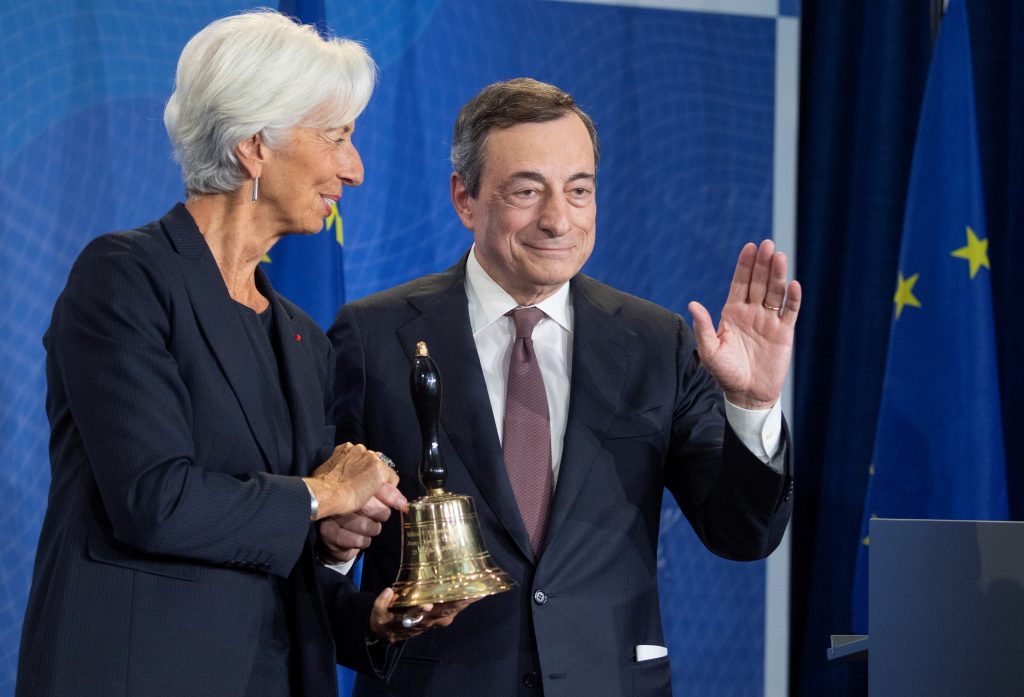
This week’s top reads include Bob Zoellick’s look at how “the German question” drove American policy during the Cold War, Christine Lagarde’s arrival in Frankfurt and the rich details behind the death of ISIS leader al-Baghdadi.
Also don’t miss this week’s top reads: the New Yorker’s profile of the Ukrainian president who is at the heart of America’s domestic political drama, and two Atlantic Council reports laying out future scenarios and a path toward best outcomes
#1 THE GERMAN QUESTION
German reunification gave Europe strategic purpose
Robert Zoellick / FINANCIAL TIMES
Robert Zoellick, former World Bank president and long-time US official, reminds us that the post-World War II policies that resulted in the Berlin Wall’s fall always had Germany as their priority. The challenge was to answer “the German question” of how Europe could cope with a powerful German state at its heart.
“The world fought two bloody wars in the 20th century against Germany and then during 40 years of cold war two hostile German states faced off on the frontline of a divided Europe,” writes Zoellick, also a member of the Atlantic Council International Advisory Board, in the Financial Times.
Embedded in Zoellick’s piece is also a warning for the future. “Thirty years later, Washington would be foolish to ignore the growing drift and alienation among the US and Germany and the EU,” he writes.
Read More →
#2 CHRISTINE LAGARDE IN FRANKFURT
Christine Lagarde Brings a New Style to the ECB
Marc Hujer, Michael Sauga / DER SPIEDEL
Washington’s loss is Frankfurt’s gain.
Yaroslav Trofimov takes a smart look in the Weekend WSJ at why the United States can’t seem to extract itself from the Middle East, even as President Trump joins a long line of American leaders who have wanted to do so.
“…Subsequent attempts to pivot away from the region or ignore it altogether have contributed to humanitarian catastrophes, terrorist outrages and geopolitical setbacks,” writes Trofimov, “further eroding America’s standing in the world.” Read More →
#3 THE DEATH OF A TERRORIST
ISIS Leader Paid Rival for Protection but Was Betrayed by His Own
Rukmini Callimachi / NEW YORK TIMES
As Kurds Tracked ISIS Leader, U.S. Withdrawal Threw Raid Into Turmoil
Ben Hubbard, Eric Schmitt / NEW YORK TIMES
If you don’t want to wait for the movie, read the two pieces above as early draft scripts for the takedown of Islamic State leader Abu Bakr al-Baghdadi. His betrayal by a close confident, despite the payment of protection money, resulted in his death in an America Special Forces raid last weekend. Read More →
One of the great ironies of the episode is that just as President Trump was being accused of abandoning Kurdish forces in Syria, it was the Kurds whose “role in finding Mr. al-Baghdadi was essential – more so than all other countries combined” – as one US official put it.
The details are rich. To confirm it was him, Kurdish spies “stole a pair of Mr. al-Baghdadi’s underwear – long white boxers – and obtained a blood sample, both for DNA testing.” Read More →
#4 UKRAINE’S SATIRIST PRESIDENT
Ukraine’s Unlikely President, Promising a New Style of Politics, Gets a Taste of Trump’s Swap
Joshua Yaffa / NEW YORKER
The New Yorker’s Joshua Yaffa provides a must-read profile of comedian-turned-Ukrainian President Volodymyr Zelensky. His improbable election now has been followed by an even more unlikely set of circumstances that have put him at the center of an American political firestorm.
“Politics is like bad cinema,” the entertainer-president tells Yaffa. “People overact, take it too far. When I speak with politicians, I see this in their facial expressions, their eyes, the way they squint … I look at things like a producer. I would often watch a scene on the monitor, and the director and I would yell, ‘Stop, no more, this is unwatchable! No one will believe this.’”
How can one possibly believe, for example, that Zelensky and his “most scrutinized performance to date” – his July 25 phone call with President Trump – would now be at the center of US impeachment efforts.
Fact is stranger than satire. Read More →
#5 DECLINE OR NEW RENAISSANCE?
Global Risks 2035 Update: Decline or New Renaissance?
Mathew J. Burrows / ATLANTIC COUNCIL
Ash Jain and Matthew Kroenig / ATLANTIC COUNCIL
This space rarely includes Atlantic Council publications, given my preference to eschew self-promotion and focus on traditional media.
The two reports listed above provided ample reason to reverse this reserve.
Mathew Burrows underscores the defining moment the world faces: the right US and global leadership could spawn one of the most prosperous, peaceful and democratic periods of human history. The wrong choices could produce a “descent into chaos,” economic downturn and potentially war. Read More →
Ash Jain and Matthew Kroenig take a stab at how to push the needle in that more positive direction by providing a template for how to “revitalize, adapt and defend a rules-based international system.” Read More →
Quote of the Week
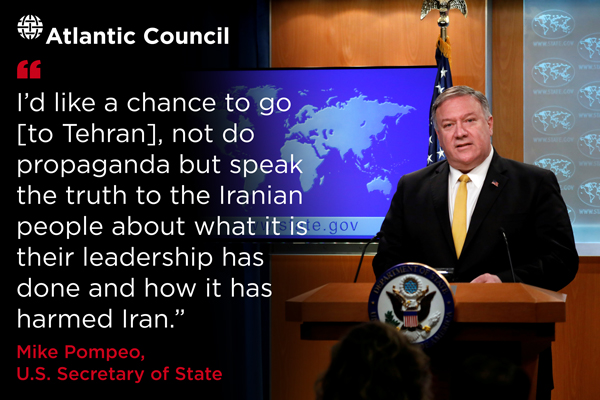
Atlantic Council Top-Reads
Image: Tourists are seen in front of a graffiti depicting former Soviet leader Leonid Brezhnev kissing his East German counterpart Erich Honecker along the East Side Gallery, the largest remaining part of the former Berlin Wall, in Berlin, Germany, August 23, 2019. On November 9th Germany will mark the 30th anniversary of the fall of the Berlin Wall (Berliner Mauer) in 1989. Picture taken August 23, 2019. REUTERS/Fabrizio Bensch
